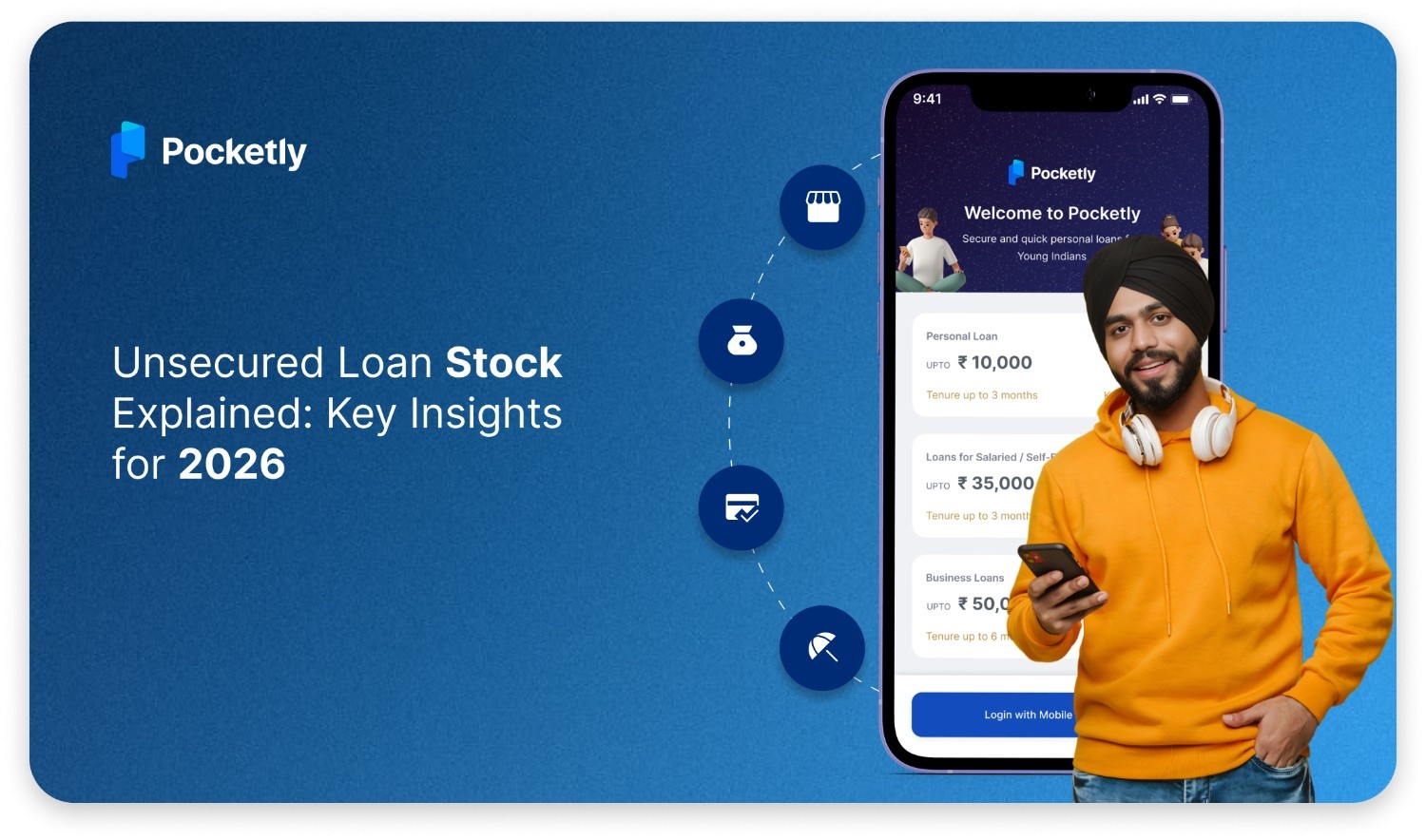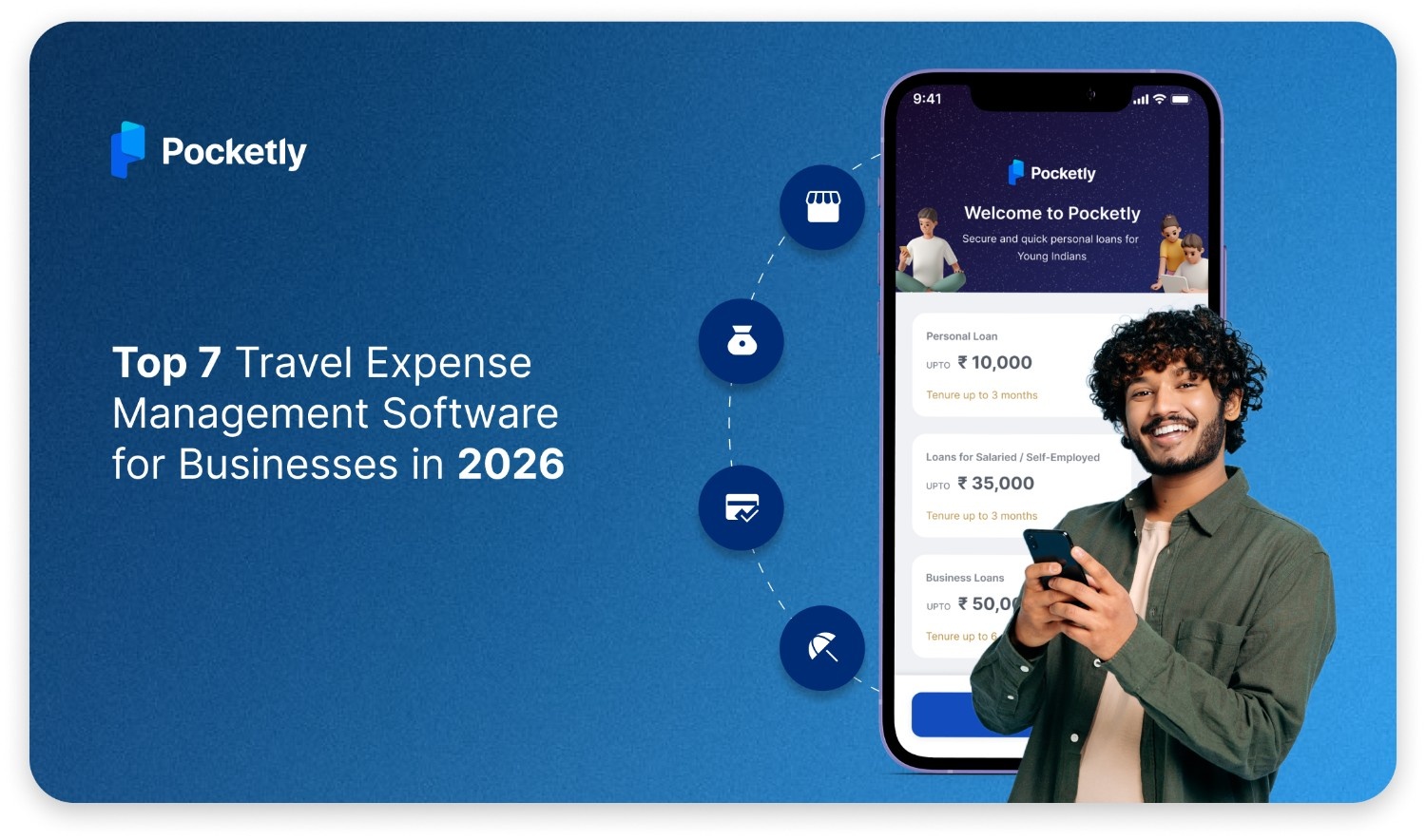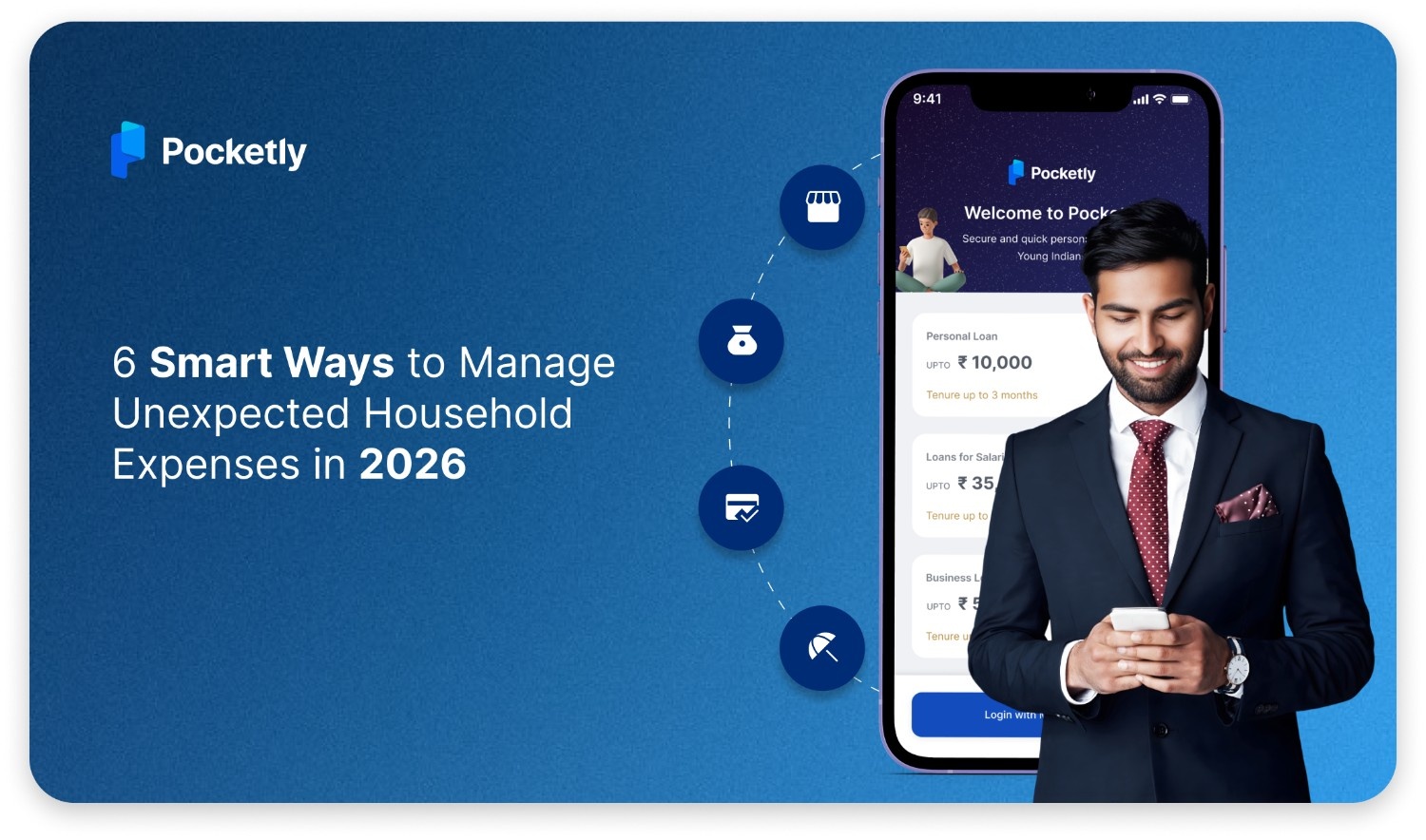When you think about personal loans, your first thought might be about covering urgent expenses or financing a big purchase. But did you know personal loans can also help you save on taxes? While many people focus solely on the borrowing aspect, understanding how personal loans tie into tax benefits can give you a significant edge in financial planning.
Imagine you’ve taken a loan to spruce up your home, fund your education, or invest in your business. Did you know some of these uses could make you eligible for tax deductions? Yes, you read that right! The tax treatment of personal loans depends on how you use the funds, and if done strategically, you could reduce your taxable income.
This guide will break down the tax exemptions, eligibility criteria, and benefits associated with personal loans in a simple, engaging way. So, let’s dive in and explore how personal loans can not only ease financial strain but also help you maximise your tax savings!
Understanding Tax Exemptions on Personal Loans
The first question many people ask is, “Are personal loans taxable?” The answer lies in how you use the loan. Personal loans themselves aren’t considered income, so they aren’t taxable. However, the tax benefits depend on the purpose of the loan. If your loan is used for eligible purposes, like buying a house or investing in your business, you could enjoy significant tax deductions.
Importance of Loan Usage in Determining Tax Benefits
The tax benefits associated with personal loans don’t depend on the loan itself but instead on how you use the borrowed funds. Lenders don’t impose restrictions on personal loan usage, but the Income Tax Act has specific guidelines for tax deductions based on the purpose of the loan.
Eligible Uses That Offer Tax Benefits:
- Home Renovation or Construction: Loans used for renovating or constructing a home can provide interest deductions under Section 24(b).
- Business Investment: Interest paid on personal loans for business users can be claimed as a business expense under Section 37.
- Education Expenses: Loans directed toward higher education may offer tax benefits under Section 80E.
- Asset Purchase: When used to purchase assets like property or gold, the interest can be added to the asset’s cost, providing future tax deductions.
Non-Eligible Uses:
If the loan is used for personal expenses like vacations, weddings, or luxury purchases, these do not qualify for tax exemptions.
By aligning the purpose of your loan with eligible tax-saving avenues, you can maximise your borrowing while minimising your tax liability.
Eligibility for Tax Benefits on Personal Loans
To claim tax benefits on personal loans, it's essential to provide appropriate documentation that verifies the loan's purpose aligns with eligible criteria. Below is a table outlining the required documents for various loan purposes:
| Loan Purpose | Required Documentation |
|---|---|
| Home Renovation or Construction |
|
| Business Investment |
|
| Education Expenses |
|
| Asset Purchase |
|
Make sure to have these documents readily available to facilitate the process of claiming tax deductions and help substantiate your claims during assessments.
Tax Benefits on Personal Loans
Did you know that personal loans can provide you with tax benefits? While a personal loan itself isn’t taxable since it’s not considered income, the way you use the loan can determine whether you’re eligible for tax deductions. Personal loans can serve various purposes, and when aligned with specific categories like home renovation, business investment, education, or asset purchase, they can help you save on taxes.
Let’s explore how personal loans can offer tax advantages in different scenarios.
1. Personal Loan Tax Benefits for Home Renovation or Construction
Personal loans can provide significant tax relief under Section 24(b) of the Income Tax Act when used to construct or renovate a home.
- Interest Deduction Under Section 24(b):
- The interest you pay on a personal loan taken for home construction or renovation can be claimed as a deduction.
- This deduction applies to both self-occupied and rented properties.
- Specific Deduction Limits:
- For self-occupied properties, the deduction limit is up to ₹2,00,000 annually.
- For rented properties, there is no upper limit for the interest deduction, making it highly beneficial for landlords.
Example: If you borrowed ₹5,00,000 for home repairs, the interest you pay on the loan can reduce your taxable income, effectively lowering your tax liability.
2. Personal Loan Tax Benefits for Business Investment
A personal loan used for business purposes can help you claim tax deductions under Section 37 of the Income Tax Act.
- Claiming Interest as a Business Expense:
- Interest paid on a personal loan used for business activities might be deducted as a business use or other expense.
- This reduces the taxable income of your business, directly impacting profitability.
- No Cap on Deduction Amount:
- Unlike other tax benefits, there’s no upper limit on the interest deduction for loans used in business. This makes it ideal for entrepreneurs and business owners.
Example: If you used a personal loan to buy equipment for your startup, the interest paid on the loan can be treated as a deductible expense, reducing your business’s taxable income.
3. Education-Related Tax Benefits on Personal Loans
Personal loans for education purposes qualify for tax deductions under Section 80E of the Income Tax Act.
- Interest Deduction Under Section 80E:
- You can claim a deduction on the interest paid for loans taken to fund higher education, either for yourself or a family member.
- Conditions and Limits:
- This benefit is available for up to 8 years, starting from the year you begin repayment.
- There’s no cap on the amount of interest you can claim, but the loan must be taken from a recognised financial institution.
Example: If you used a personal loan to pay for a family member’s university fees, the interest you pay can reduce your taxable income, saving you money during the repayment period.
4. Utilizing Personal Loans for Asset Purchase
If you’re using a personal loan to purchase assets like gold, shares, or property, the interest paid can still provide indirect tax benefits.
- Interest Amount Addition to Cost:
- The interest amount can be added to the cost of the asset, which helps reduce capital gains tax when you sell the asset in the future.
- Eligible Assets Under Section 80C:
- Investments like residential property can qualify for deductions under Section 80C. While this section doesn’t directly cover personal loans, it may still benefit you if the loan contributes to specific investments.
Example: If you purchase a property using a personal loan, the interest can be added to the property’s acquisition cost. When you sell the property, this reduces your taxable capital gains.
Using personal loans effectively can be a smart move for your financial planning. Whether you’re renovating your home, funding your business, paying for education, or buying assets, these loans can help you save on taxes.
Ensure all your documents are in place and take advice from a tax professional to take advantage of these opportunities.
Smart Tips for Maximising Personal Loan Benefits
Managing a personal loan wisely can help you save money, avoid unnecessary stress, and even improve your financial health. Beyond the tax benefits, here are some actionable tips to make the most of your personal loan.
- Set a Budget Before Applying
- Know how much you need to borrow and stick to it. Avoid over-borrowing, as it leads to higher EMIs and interest costs.
- Prioritise Timely Payments
- Missing EMIs not only affects credit scores and other penalties. Set reminders or automate payments for consistency.
- Consolidate Debts Where Possible
- If you have multiple loans, consider consolidating them into one personal loan with lower interest rates for easier management.
- Negotiate with Lenders
- Don’t hesitate to negotiate for better interest rates or repayment terms, especially if you have a stable income or a good repayment history.
- Avoid Unnecessary Borrowing
- Borrow only for essential needs like emergencies, education, or home improvements. Avoid taking loans for impulsive purchases.
- Build a Loan Repayment Cushion
- Set aside extra savings as a buffer to manage your EMIs in case of unexpected financial crunches.
- Track Your Credit Score Regularly
- A good credit score opens up better loan options in the future. Monitoring it helps you identify and fix potential issues early.
By implementing these tips, you’ll not only make better financial decisions but also ensure your personal loan works in your favour!
If you want to get extra tips and tricks on managing your finances, then check out our guide on Financial Planning Tips for Young Adults.
And when urgent cash needs arise, choosing the right digital lending platform can feel overwhelming. That’s where Pocketly steps in to make things effortless! Let’s dive into why Pocketly could be the perfect solution for your financial needs.
Key Features That Make Pocketly a Great Finance Buddy
Sometimes unexpected expenses come up, and you need cash quickly, whether it’s for an unplanned medical bill, emergency repairs, or just a bit extra to make it through the month. Here’s what you can consider:
- Instant Loans: Pocketly offers quick, easy-to-apply loans so you don’t have to worry about long waits. Once the amount is approved, funds are transferred directly to your account, making it perfect for those urgent situations.
- Flexible Repayment Options: You might choose repayment terms that fit your schedule, making it easier to manage your finances without feeling overwhelmed.
- Minimal Documentation: Forget about heaps of paperwork! Pocketly’s application process is designed to be simple, requiring only basic documentation, so you can get started without any hassle.
- Student-Friendly Solutions: Pocketly is especially handy for students who often face limited financial resources. It offers student-friendly loans to help cover everything from small expenses to emergencies, effortlessly bridging financial gaps.
- Transparent Fees and Rates: With Pocketly, what you see is what you get. There are no hidden fees or surprise charges, so you know exactly what you’ll be paying back.
- Credit Score Building: Pocketly also helps you build your credit history, which can be beneficial for future financial needs, whether it’s applying for bigger loans or getting better interest rates.
With these features, Pocketly truly stands out as a dependable finance buddy that’s there to support you during financial hiccups, giving you peace of mind and the flexibility to manage your money on your terms.
Conclusion
Personal loans are more than just a financial safety net—they can be an intelligent tool for achieving your goals while also reaping valuable tax benefits. Whether you’re renovating your home, investing in a business, or financing education, understanding how to align your loan usage with tax-saving opportunities can significantly reduce your financial stress and enhance your planning.
And when you need a reliable platform to access quick personal loans, Pocketly is here to make the process effortless. With fast approvals, no hidden fees, and flexible repayment options, Pocketly ensures you have the financial support you need without unnecessary hassles.
Ready to make your next move? Download the Pocketly app today and see the magic
happen with your financial growth!
FAQs
Do personal loans count as taxable income?
No, personal loans are not classified as taxable income as they are a form of debt, not earnings. However, the tax benefits depend on the purpose of the loan, such as home renovations or business investments.
Can I claim tax deductions on personal loan interest?
Yes, it is possible, but only if the loan is used for different purposes like home renovation, business investment, or education. Ensure you maintain proper documentation to validate the usage.
What documents are required to claim tax benefits on personal loans?
You'll need proof of loan usage, such as receipts for home renovations, business expense invoices, or education fee statements. A loan agreement and repayment details from the lender are also required.
Do all personal loans qualify for tax benefits?
No, only loans used for eligible purposes such as home improvement, purchasing assets, or business expansion qualify. Loans used for personal consumption, like vacations or weddings, typically do not offer tax benefits.
How can I maximise tax benefits from a personal loan?
Use the loan for eligible purposes and maintain detailed records of the money you spent. it would be a great help to consult a tax professional to identify all applicable deductions.
What is the loan application process on Pocketly?
The process is simple. Download the Pocketly app, sign up, provide basic details, upload documents, and get your loan approved instantly.
Can I apply for a loan on Pocketly with a low credit score?
Yes, Pocketly considers factors like your income and repayment ability, making it a great option even if your credit score isn’t perfect.
What are the loan amounts Pocketly offers?
Pocketly offers flexible loan amounts ranging from ₹1,000 to ₹25,000, suitable for short-term financial needs.
Are there any hidden charges on Pocketly loans?
No, Pocketly ensures complete transparency with no hidden fees. All charges are clearly mentioned during the loan application process.
How quickly can I get a loan through Pocketly?
Pocketly’s fast approval process ensures that you can receive your loan amount within minutes of approval.








